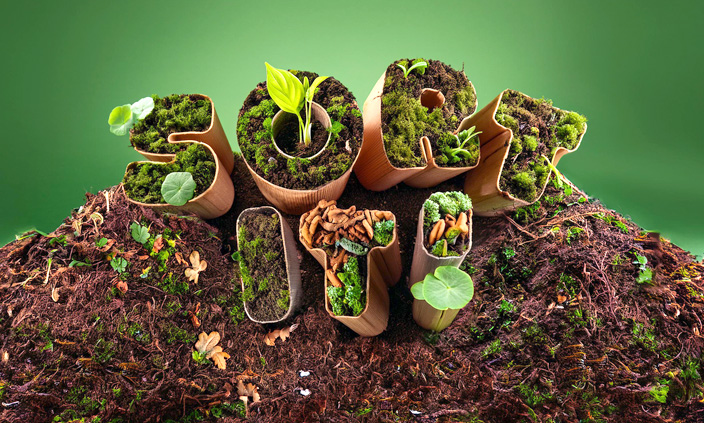
The Importance of Composting Food Waste
Food waste is one of the most significant environmental challenges we face today. In Ireland, approximately 750,000 tonnes of food waste are generated each year (Home). Composting is an effective way to manage this waste, turning it into valuable resources instead of letting it end up in landfills. In this blog post, we’ll explore how composting food waste contributes to the circular economy and helps reduce the amount of food waste going to landfill.
Contributing to the Circular Economy
A circular economy is an economic system aimed at minimizing waste and making the most of resources. By composting food waste, we can transform organic materials into nutrient-rich compost, which can then be used to improve soil health and support sustainable agriculture.
Benefits of Composting to the Circular Economy:
- Resource Efficiency: Composting turns waste into a valuable resource, reducing the need for chemical fertilizers and improving soil fertility.
- Sustainable Agriculture: The compost produced from food waste can be used in gardens, farms, and public green spaces, supporting the growth of healthy plants and crops.
- Waste Reduction: Composting reduces the volume of waste that needs to be processed and disposed of, creating a closed-loop system where organic waste is continually recycled and reused.
In Ireland, approximately 590,000 tonnes of organic waste, including food waste, were accepted for treatment at composting and anaerobic digestion facilities in 2021 (Home). This significant volume of waste being composted demonstrates Ireland’s commitment to embracing circular economy principles.
Reducing the Amount of Food Waste Going to Landfill
Sending food waste to landfills has severe environmental consequences. When organic waste decomposes in a landfill, it produces methane, a potent greenhouse gas that contributes to climate change. Additionally, landfills are a significant source of pollution and can have detrimental effects on surrounding ecosystems.
Impact of Reducing Food Waste in Landfills:
- Lower Greenhouse Gas Emissions: Composting food waste instead of sending it to landfills reduces methane emissions, helping to mitigate climate change.
- Landfill Diversion: By composting food waste, we can significantly reduce the amount of waste that ends up in landfills, extending the lifespan of existing landfill sites and reducing the need for new ones.
- Pollution Prevention: Landfills can leach harmful substances into the soil and water, leading to environmental degradation. Reducing the amount of waste sent to landfills helps minimize this risk.
Ireland has made strides in managing food waste, but there is still much work to be done. By increasing composting rates and reducing food waste sent to landfills, Ireland can continue to make progress toward its environmental goals.
Make the Most of Your Brown Compost Bin!
Your brown compost bin is an easy and efficient way to dispose of organic waste while helping the environment. Instead of worrying about setting up a compost bin at home, simply place your food scraps and organic waste directly into the brown bin. This includes fruit and vegetable peels, coffee grounds, eggshells, and even yard waste. By doing this, you ensure that your waste is turned into nutrient-rich compost that can benefit gardens and green spaces. Plus, it helps reduce landfill waste and cuts down on odours. So next time you’re about to toss out your food waste, remember to use your brown bin—it’s a small step that makes a big difference!
Conclusion
Composting food waste is a powerful tool in the fight against environmental degradation. By contributing to the circular economy and reducing the amount of food waste going to landfill, composting helps create a more sustainable and resilient ecosystem. Ireland’s efforts in composting are commendable, but there is always room for improvement. By participating in composting, you can play a vital role in supporting these efforts and making a positive impact on the environment.
#SortItCampaign #Composting #CircularEconomy #Sustainability #WasteReduction #EcoFriendly #SaveThePlanet
Start composting today and be part of the solution to reducing food waste and promoting sustainability. Every small effort counts in making a big difference!
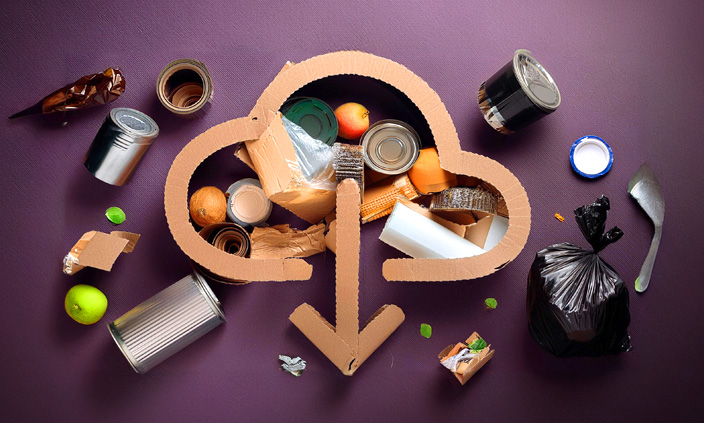
Handy Recycling Downloads
To assist you in your recycling efforts, we’ve created a series of handy downloads that you can use as quick reference guides.

Waste Segregation Posters
A visual guide that shows what materials go into which bin—ideal for homes, offices, and schools.
Mixed Recycling / Food Recycling / General Waste

Composting Tips
A practical guide to composting organic waste, with tips on what can and cannot be composted.
Composting Guide

Electronic Waste Disposal Guide
Instructions on how to properly dispose of electronic waste, ensuring safe recycling and disposal of hazardous components.
E-waste Guide
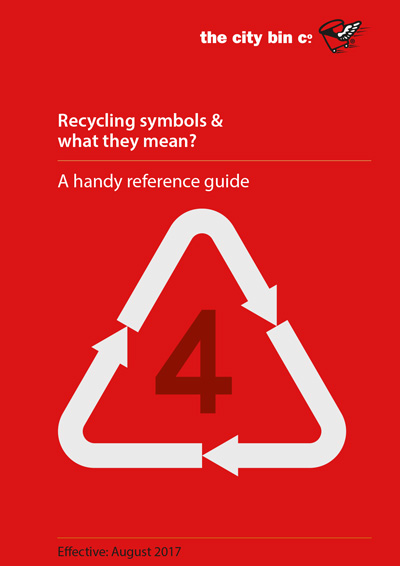
Recycling Symbols Guide
A comprehensive list of recycling symbols and their meanings, helping you identify recyclable materials quickly.
Recycling Symbols
These resources are designed to make recycling easy and accessible for everyone. By using these guides, you can ensure that you’re recycling correctly and doing your part to protect the environment. Download them, print them out, and keep them handy as a daily reminder of the importance of proper waste management.
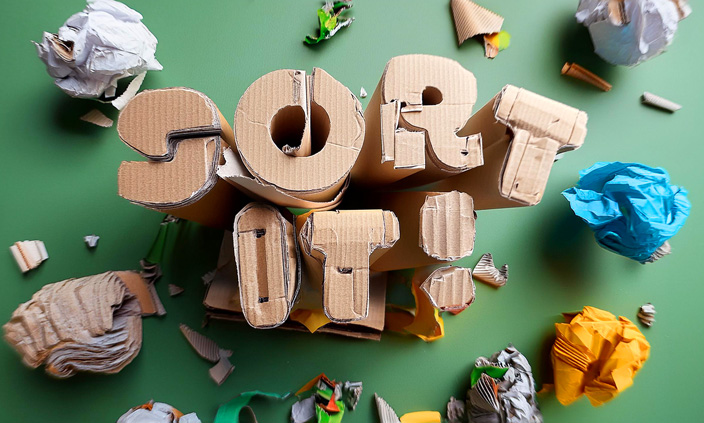
The Importance of Separating Paper Waste
Proper waste segregation is essential for effective recycling and sustainability efforts. One of the critical materials that require careful separation is paper.
The Importance of Separating Paper Waste
In this blog post, we’ll discuss the importance of separating paper waste to (a) reduce contamination of recyclables, (b) recover paper waste for recycling into new products, and (c) decrease the need for tree harvesting.
Reducing Contamination of Recyclables
Contamination is a significant issue in the recycling process. When paper waste is mixed with non-recyclable materials or food waste, it can contaminate the entire batch, making it difficult to recycle.
Impact of Contamination:
- Quality Degradation: Contaminated paper lowers the quality of recycled paper products.
- Increased Costs: Additional sorting and cleaning processes are required to remove contaminants, increasing operational costs.
- Landfill Overflow: Contaminated recyclables often end up in landfills, contributing to waste management challenges.
In Ireland, contamination rates are a concern. While the country has made significant strides in recycling, maintaining high-quality streams of recyclable paper is essential to improve overall efficiency (Home) (Repak).
Recovering Paper Waste for Recycling into New Products
Proper segregation of paper waste ensures that these materials can be efficiently processed and recycled into new products. This is crucial for sustaining a circular economy where materials are reused and repurposed.
Benefits of Recycling Paper:
- Resource Efficiency: Recycling paper conserves natural resources by reusing fibres.
- Energy Savings: The process of recycling paper uses less energy compared to producing new paper from raw materials.
- Environmental Protection: By recycling paper, we reduce the need for landfills and decrease pollution associated with paper production.
In 2021, Ireland achieved a paper recycling rate of 75%, showcasing the potential of effective paper waste segregation (Repak) (TheJournal).

Reducing the Need for Tree Harvesting
One of the most significant benefits of recycling paper is the reduction in the demand for new paper, which directly impacts tree harvesting. By recycling paper, we can help conserve forests and protect biodiversity.
Advantages of Reducing Tree Harvesting:
- Conservation of Forests: Reducing the demand for new paper helps preserve forests, which are vital for maintaining ecological balance.
- Lower Carbon Footprint: Trees absorb carbon dioxide, and by conserving forests, we help mitigate climate change.
- Biodiversity Protection: Forests are home to a wide variety of species. Reducing tree harvesting helps protect these habitats.
Ireland’s commitment to recycling paper contributes significantly to forest conservation efforts. By recycling more paper, we can reduce the pressure on forests and promote sustainable forestry practices (Central Statistics Office) (Repak).
Steps to Proper Paper Waste Segregation
- Identify and Separate: Clearly distinguish between different types of paper (e.g., office paper, newspapers, cardboard) and ensure they are separated from other waste streams.
- Keep It Clean and Dry: Ensure paper waste is free from food residues and other contaminants.
- Use Proper Bins: Utilise bins specifically designated for paper to avoid cross-contamination with other recyclables.
- Educate and Encourage: Raise awareness among household members and the community about the importance of proper paper waste segregation.
Conclusion
Separating paper waste is a vital practice that contributes to reducing contamination, recovering valuable materials for recycling, and decreasing the demand for new paper. Ireland’s progress in paper recycling highlights the importance of continued efforts in waste segregation. By participating in the ‘Sort It’ campaign, we can collectively work towards a more sustainable and environmentally-friendly future.
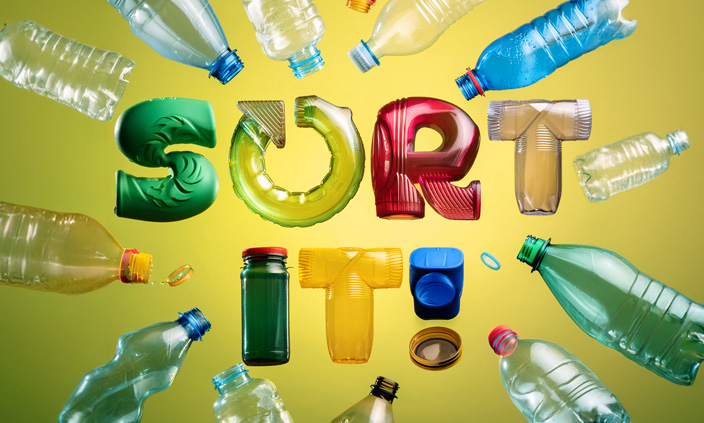
The Importance of Separating Plastic Waste
Proper waste segregation is a cornerstone of effective recycling programs. One of the most significant materials that require careful sorting is plastic. In this blog post, we’ll discuss the importance of separating plastic waste to (a) reduce contamination of recyclables, (b) recover plastic waste for recycling into new products, and (c) reduce the amount of new plastic needed.
Reducing Contamination of Recyclables
Contamination is a major hurdle in the recycling process. When plastics are not properly separated, they can contaminate other recyclable materials, making them less valuable and more difficult to recycle.
Impact of Contamination:
- Quality Degradation: Mixed materials can reduce the quality of recyclable items, leading to a higher rejection rate at recycling facilities.
- Increased Processing Costs: Contaminated recyclables require more extensive sorting and cleaning, increasing operational costs.
- Landfill Overflow: High contamination rates mean that more recyclables end up in landfills, exacerbating waste management issues.
In Ireland, the recycling rate for plastics is currently at 32.7%, which, while above the EU target of 22.5%, still indicates a need for better separation practices to improve overall recycling efficiency (Repak) (TheJournal).
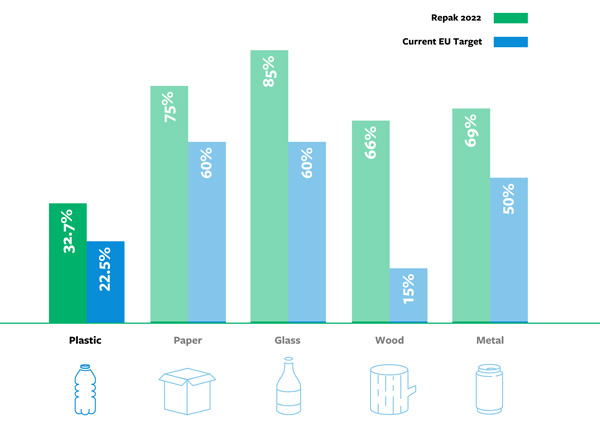
Recycling Targets Ireland vs EU
Recovering Plastic Waste for Recycling into New Products
Proper segregation of plastic waste ensures that these materials can be efficiently processed and recycled into new products. This is crucial for creating a circular economy where materials are reused and repurposed.
Benefits of Recycling Plastic:
- Resource Efficiency: Recycling plastics saves raw materials and reduces the need for virgin plastic production.
- Energy Savings: The process of recycling plastics typically consumes less energy compared to producing new plastics from scratch.
- Environmental Protection: By recycling plastics, we reduce the pollution associated with plastic production and disposal.
In 2021, Ireland recycled 104,016 tonnes of plastic, contributing to a more sustainable management of plastic waste (Repak).
Reducing the Need for New Plastic
One of the most significant benefits of effective plastic recycling is the reduction in the demand for new, virgin plastic. This has multiple environmental and economic benefits.
Advantages of Reducing New Plastic Production:
- Conservation of Resources: Reducing the need for new plastic conserves fossil fuels and other natural resources used in plastic production.
- Lower Carbon Footprint: The production of new plastics is a significant source of greenhouse gas emissions. Recycling plastics helps mitigate this impact.
- Economic Savings: Using recycled plastic in manufacturing can be more cost-effective than using virgin materials, leading to savings for businesses and consumers.
Steps to Proper Plastic Waste Segregation
- Identify and Separate: Clearly distinguish between different types of plastics and ensure they are separated from other waste streams.
- Clean and Dry: Rinse plastic containers to remove food residues and let them dry before placing them in the recycling bin.
- Use Proper Bins: Utilize bins specifically designated for plastics to avoid cross-contamination with other recyclables.
- Educate and Encourage: Raise awareness among household members and the community about the importance of proper plastic waste segregation.
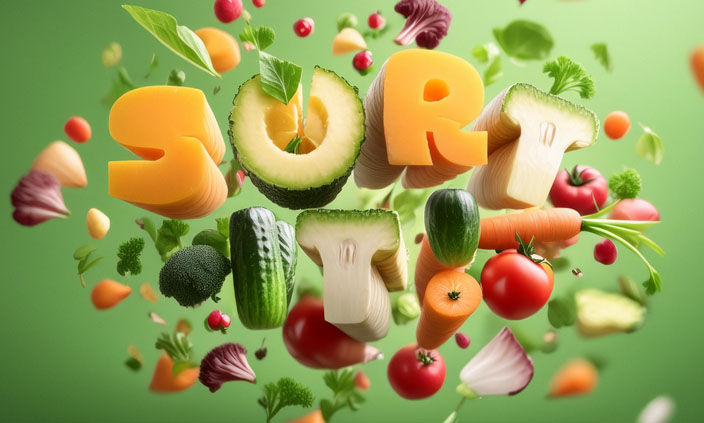
The Importance of Separating Food Waste — Reducing Contamination and Enhancing Composting
Proper waste segregation is a critical aspect of effective waste management. One of the most significant components of this process is the separation of food waste. In this blog post, we will explore how separating food waste can (a) reduce contamination of recyclables and (b) recover food waste for composting, contributing to a more sustainable environment.
Reducing Contamination of Recyclables
When food waste is mixed with recyclables, it can contaminate the entire batch. This contamination makes it difficult, if not impossible, to recycle these materials effectively. Contaminated recyclables often end up in landfills, defeating the purpose of recycling programs.
Impact of Contamination:
- Quality Reduction: Food residues can degrade the quality of recyclable materials, making them less suitable for processing.
- Increased Costs: Contaminated recyclables require additional sorting and cleaning, increasing the costs for recycling facilities.
- Landfill Overflow: Contaminated recyclables often end up in landfills, contributing to waste management challenges.
Recovering Food Waste for Composting
Separating food waste not only reduces contamination but also allows for the recovery of organic materials for composting. Composting is an environmentally friendly way to manage food waste, turning it into valuable compost that can enrich soil and support agriculture.
Benefits of Composting:
- Soil Health: Compost adds essential nutrients to the soil, improving its fertility and structure.
- Reduced Greenhouse Gases: Composting organic waste reduces methane emissions from landfills, a potent greenhouse gas.
- Resource Conservation: Using compost reduces the need for chemical fertilizers, conserving natural resources.
In Ireland, approximately 750,000 tonnes of food waste were generated in 2022. Composting facilities accepted around 590,000 tonnes of organic waste for treatment, showcasing the potential of composting in managing food waste effectively.
Steps to Proper Food Waste Segregation
- Set Up Separate Bins: Use dedicated bins for food waste, recyclables, and general waste.
- Educate Household Members: Ensure everyone in the household understands the importance of separating food waste.
- Use Compostable Bags: Line your food waste bin with compostable bags to make the process cleaner and easier.
- Compost at Home: If possible, set up a composting system at home to manage your food waste directly.
Separating food waste is a simple yet powerful step towards improving waste management. By reducing contamination of recyclables and recovering valuable organic material for composting, we can contribute to a more sustainable environment. Ireland’s progress in recycling and composting highlights the importance of continued efforts in waste segregation. Let’s all play our part in the ‘Sort It’ campaign and make a positive impact on our planet.
#SortItCampaign #FoodWaste #Composting #Recycling #Sustainability #EcoFriendly #WasteManagement #SaveThePlanet
By participating in proper waste segregation, you are not only helping to reduce landfill waste but also supporting a circular economy. Together, we can make a significant difference.
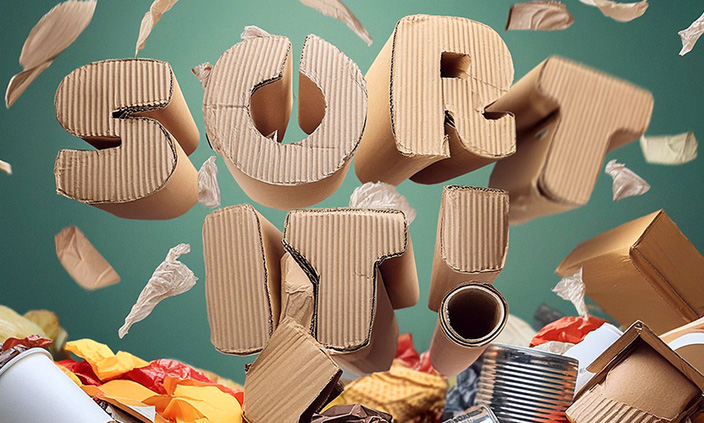
Sort It! Campaign Launch
We’re excited to launch this campaign to promote proper waste segregation and recycling. This initiative aims to raise awareness about the importance of managing waste responsibly to create a sustainable future for Ireland.
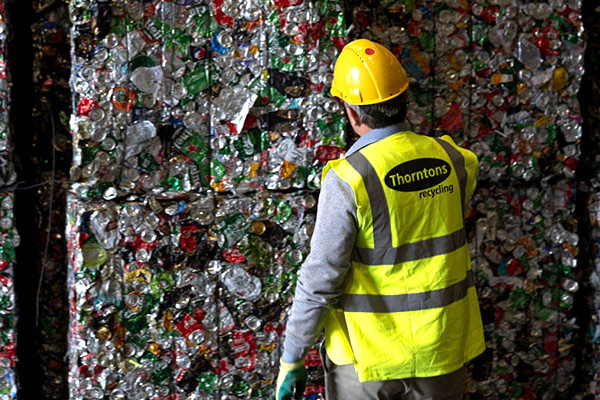
Why ‘Sort It’?
Proper waste segregation is essential for effective recycling, reducing landfill waste, and protecting our environment. When waste is sorted correctly, recyclable materials can be efficiently processed and reused, minimising environmental pollution and conserving natural resources.
Ireland’s Recycling Landscape
Despite Ireland’s strong track record in recycling, there are challenges ahead. In 2021, Ireland generated 3.17 million tonnes of municipal waste, with a recycling rate of 41% for this waste stream. Packaging waste recycling rates stood at 58%, a decrease from previous years.
Key Statistics:
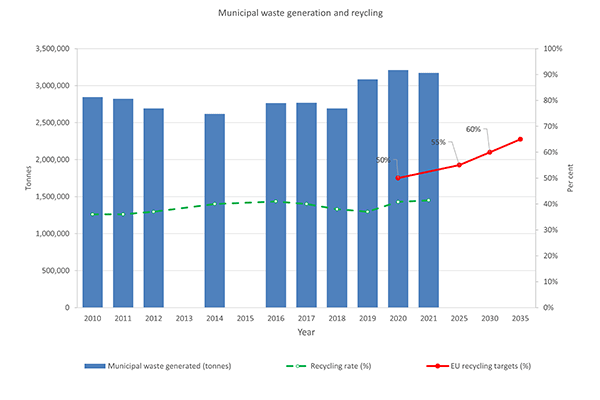
- Glass Recycling: 85%
- Paper Recycling: 75%
- Plastic Recycling: 32.7%
- Metal Recycling: 69%
- Wood Recycling: 66% (Repak).
While these rates are impressive, there is still room for improvement, especially in meeting the EU’s future recycling targets. Ireland aims to recycle 50% of all plastics by 2025 and 55% by 2030 (TheJournal).
What to Expect
Over the next three months, we will share informative posts, tips, and success stories to help you become more recycling proactive. From understanding recycling symbols to learning how to compost, we’ve got a range of topics lined up to empower you with knowledge and practical advice.
Join Us in Making a Difference
Together, we can create a cleaner, greener future. Follow our campaign, share your recycling tips, and let’s sort it out for a sustainable tomorrow!
Get Involved:
- Follow Us: Stay updated with our latest posts and tips.
- Share Your Story: Use the hashtag #SortItCampaign to share your recycling journey.
- Spread the Word: Encourage your friends and family to join the campaign.
#SortItCampaign #RecycleRight #WasteManagement #GoGreen #EcoFriendly #ReduceReuseRecycle #SaveThePlanet #ZeroWaste
By participating in the ‘Sort It’ campaign, you are taking a step towards a more sustainable future. Let’s work together to make a significant impact on our environment!
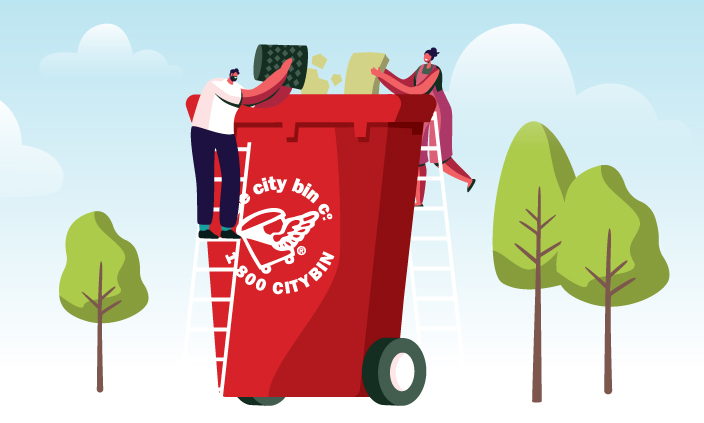
Oranmore Recycling Day 2024
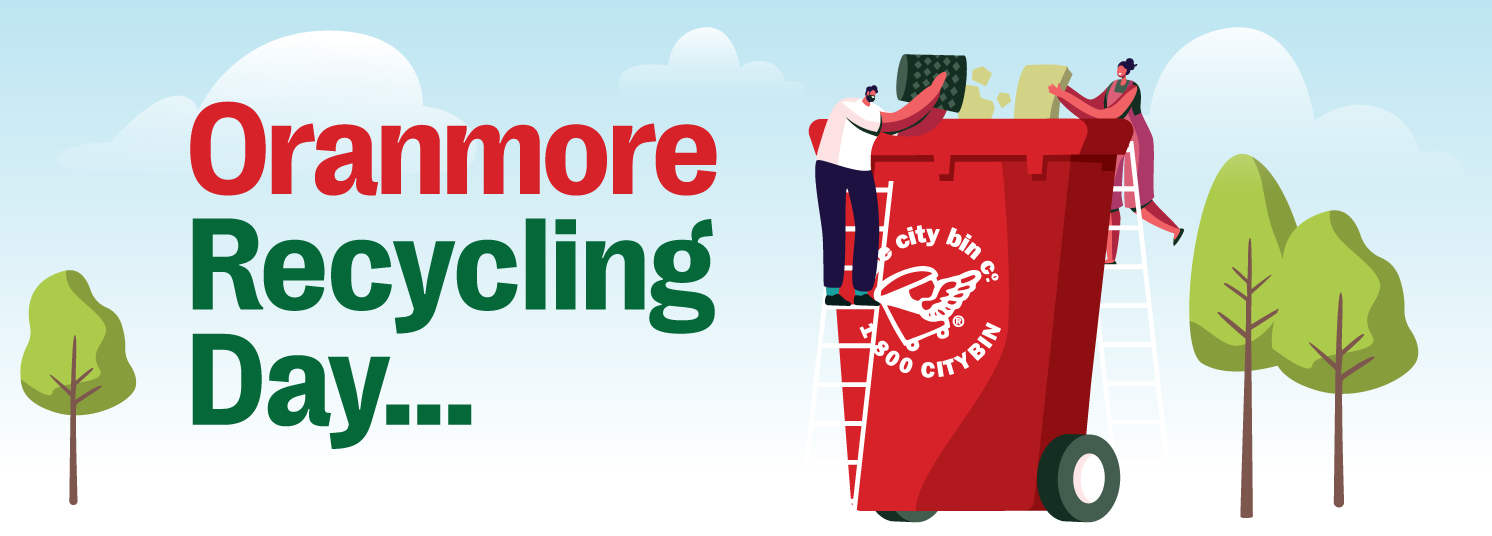
FRIDAY JUNE 7 / 10am–4pm
THE CITY BIN CO. RECYCLING CENTRE, ORANMORE H91 EVW3
We’re supporting National Food Waste Recycling Week by hosting a recycling day this Friday June 7.
The perfect opportunity to declutter your home with a clear-out – while responsibly disposing of bulky waste materials!
WHAT TO BRING?
- Any large / bulky items
- Take advantage of free recycling options available for glass, clothes
- And remember that all electrical (WEEE) items (Household items with a plug, including old washing machines, TVs, IT equipment, and mobile phones), are taken free
WE’LL ALSO HAVE…
- Our mobile security shredding unit will be on-site Shredding personal documents for free
- We’ll also have some free Kitchen Caddies to give away on the day
- And we’ll have some free bags of Compost, but when they’re gone, they’re gone – so get there early!

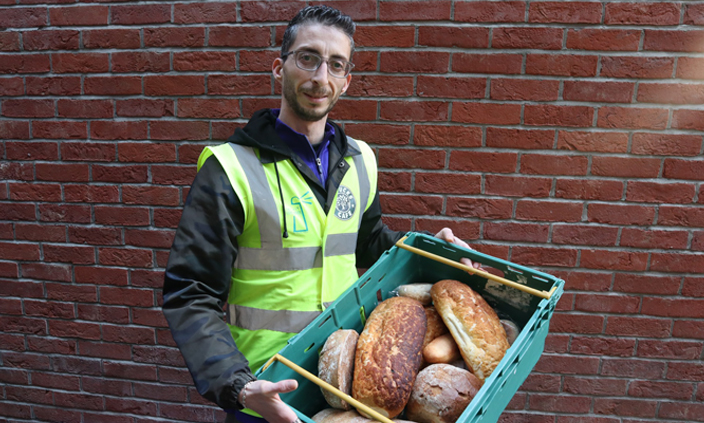
Tiglin’s ‘shining’ example
TIGLIN provides assistance to those in need. From 28 Pearse Street and operating a 7 day a week day service onsite looking after the needs of some of the most vulnerable people in our community while offer food to take away to over two hundred meals to people in homelessness, poverty & addiction. A lot of the donations come on a daily basis by the wonderful people at Foodcloud.
We first made contact with Tiglin when a tweet was picked up by our marketing team. Tiglin had huge frustrations with the cost of their waste and how it was being handled. Small bins, all general waste, being contaminated by the public was a particular recurring problem. The City Bin Co.’s John Farrell went to meet the front man of this organisation Ger Ganly and discussed how we could help them to take a more sustainable approach with their waste management.
The result is that The Light House now has bins that are fit for purpose, with locks on them that people can’t ‘flytip’ into anymore. They have also added a compost bin to help with the segregation of this waste. The team is committed to their Earth Day Pledge and as a result of our work here, Tiglin have engaged with The City Bin Co. across all their sites.
Ger Ganley – A Unique Perspective
My name is Gerard Ganley and I have the unique opportunity of working and helping two amazing charities called Tiglin Challenge & Dublin Christian Mission. Tiglin Challenge & Dublin Christian Mission have services that help people who are disadvantaged and often crippled by addiction, homelessness, mental health issues. Dublin Christian Mission is mainly based in Dublin and Tiglin has services in Dublin, Wicklow & Kildare.
We recently had a waste management/collection issue at one of our premises and our Chairman Aubrey Mc Carthy reached out to waste management companies via social media twitter to ask for help. The City Bin Co. and particularly John Farrell (Client Innovation Manager) got back in contact with us to help and during our conversations John and the company have agreed to support us and help us with reducing our general waste and become much more greener to the environment. When I first discussed about trying to reduce waste, damage to environment and costs it was a no brainer to take this support and help.
This opportunity to reduce, recycle waste and be friendlier to society made me think of when I was 14 years old and losing my father and taking the wrong road that was leading to many wasted years of drug addiction. For many of those years I was very often told by others that I was a waster, I believed most times that I was a waster and felt like a piece of rubbish. From the age of 14 years old to the age of 28 years old I lived for drugs, my life was controlled and consumed by drugs and alcohol. I was a chronic heroin and crack cocaine addict at a young age of 22 years old. Life became more and more of a mess as the years rolled on and at age 28 years old I had became homeless on the streets of Dublin, and life was extremely difficult. I had decided through the help of a few individuals that I would get treatment and seek help. I went to a similar program as Tiglin and found a life beyond addiction thank God. Throughout the years since completing that residential program I’ve completed 2 higher diplomas, a degree, got married and have three beautiful children. I’ve worked helping those who have been crippled by addiction and who feel that their life is wasting away or like my own story maybe feel like a piece of rubbish. I never in my wildest dreams thought that my life could be changed and that I could become very useful in life.
It’s amazing to see how waste can be recycled and used again. And a similarity of what was once waste or useless can be useful again!
If you would like more information on the Zero Project, please contact John Farrell, The City Bin Co. email john@citybin.com
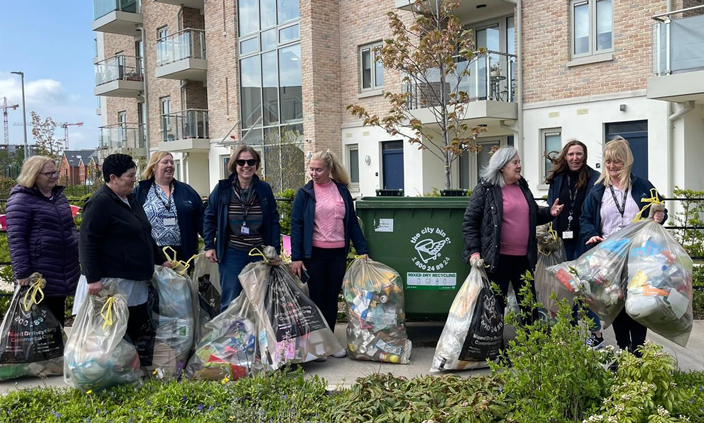
Fold Housing’s Zero Pledge
FOLD Housing provides apartments and houses for older people and families. In addition, the Association provides supported housing with 24 hour care for frail and older people.
FOLD Housing enhances the quality of life for many people in the community by providing a unique combination of accommodation and associated service options. These include: Housing-with-Care and day care for frail older people and people with dementia; sheltered housing; and general needs accommodation for families.
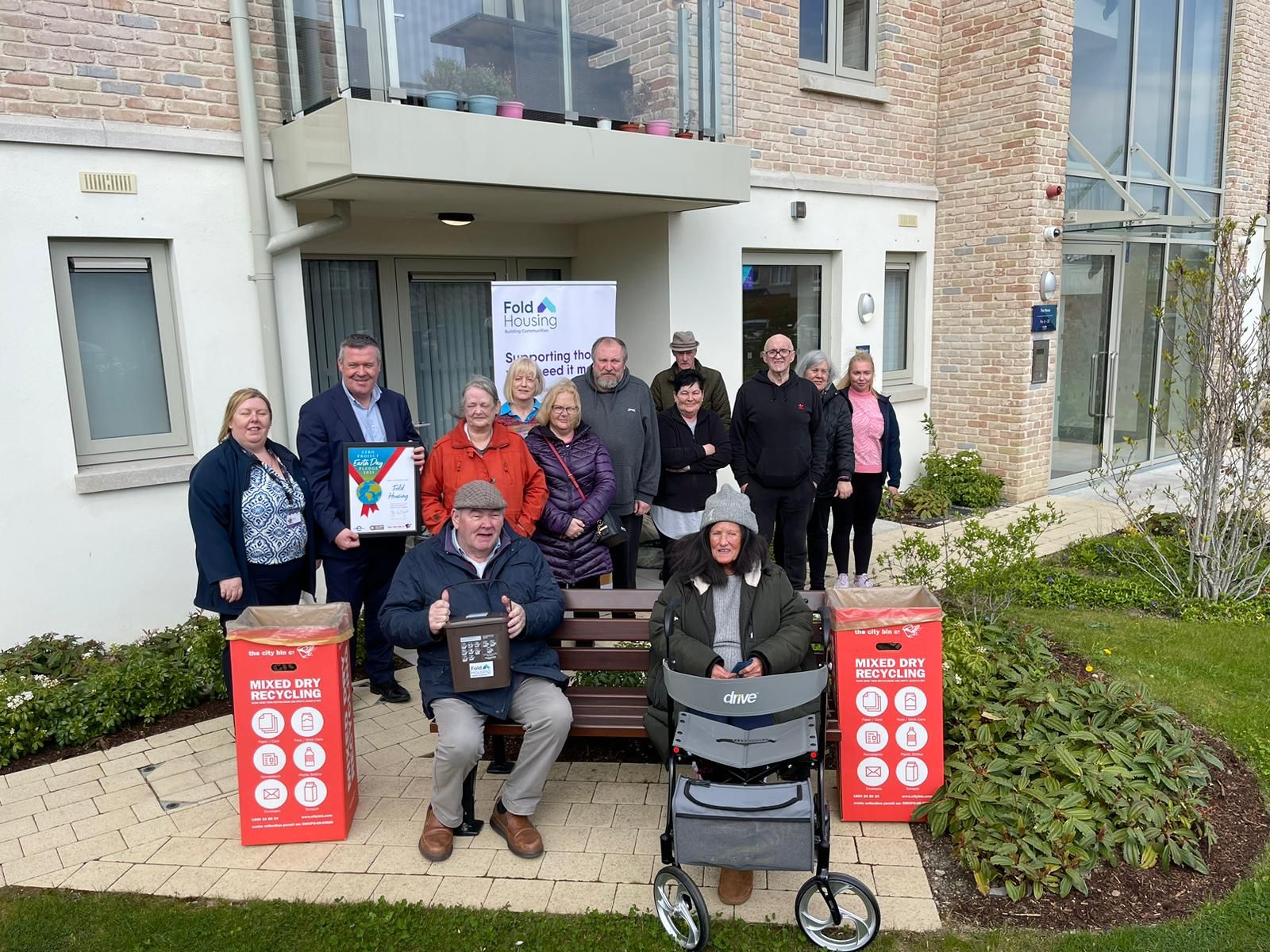
The Fold Housing Team
We met with the Fold Housing Team earlier this year to investigate a better more inclusive way to recycle. We focused on two brand new developments in the Citywest part of Dublin namely Cuil Duin and The Mews. Both sites cater for approximately 25 units.
Karen Murphy is the Estate manager that introduced us to her team and worked with The City Bin Co.’s John Farrell to find a better and more cost-effective way to handle their waste.
- We are currently testing the use of organic bin caddies in all of the units along with the use of a recycling bag to move waste
from each unit to the bin stores. - The bin stores now have a general waste bin, a recycling bin, an organic bin and a glass bin.
- All bin stores have clear signage that show what can go into each bin.
- The difference is now significant with binstores achieving over 40% less general waste in the bins.
- The opportunity to recycle has been embraced by all of the teams and is proving to be a big success.
The adoption of the Earth Day Pledge with the group of committed people in Fold Housing will only send the recycling statistics one way. The pledge will be extended across the full portfolio of sites over the next 12 months.
The goal is to achieve a greater recycling rate, a greater understanding of the significance of recycling to achieve the ‘Zero Waste to Landfill’ Accrediatation.
If you would like more information on the Zero Project, please contact John Farrell, The City Bin Co. email john@citybin.com

Knight Frank continue their ‘Journey to Zero’
We engaged with the Knight Frank Green Team onsite at their HQ 6 months ago to investigate a way to handle their waste streams in a more effective manner.
Knight Frank’s senior management team under the supervision of Alison O Neill (Associate Director Property Asset Management) decided to investigate a way to recycle more and work to a ‘Zero Waste to Landfill’ goal. A key part of this process was meeting with The City Bin Co. to understand how waste is being created in the building. A major issue was the non-labelling of bins and no other option available than the ‘black sack’.
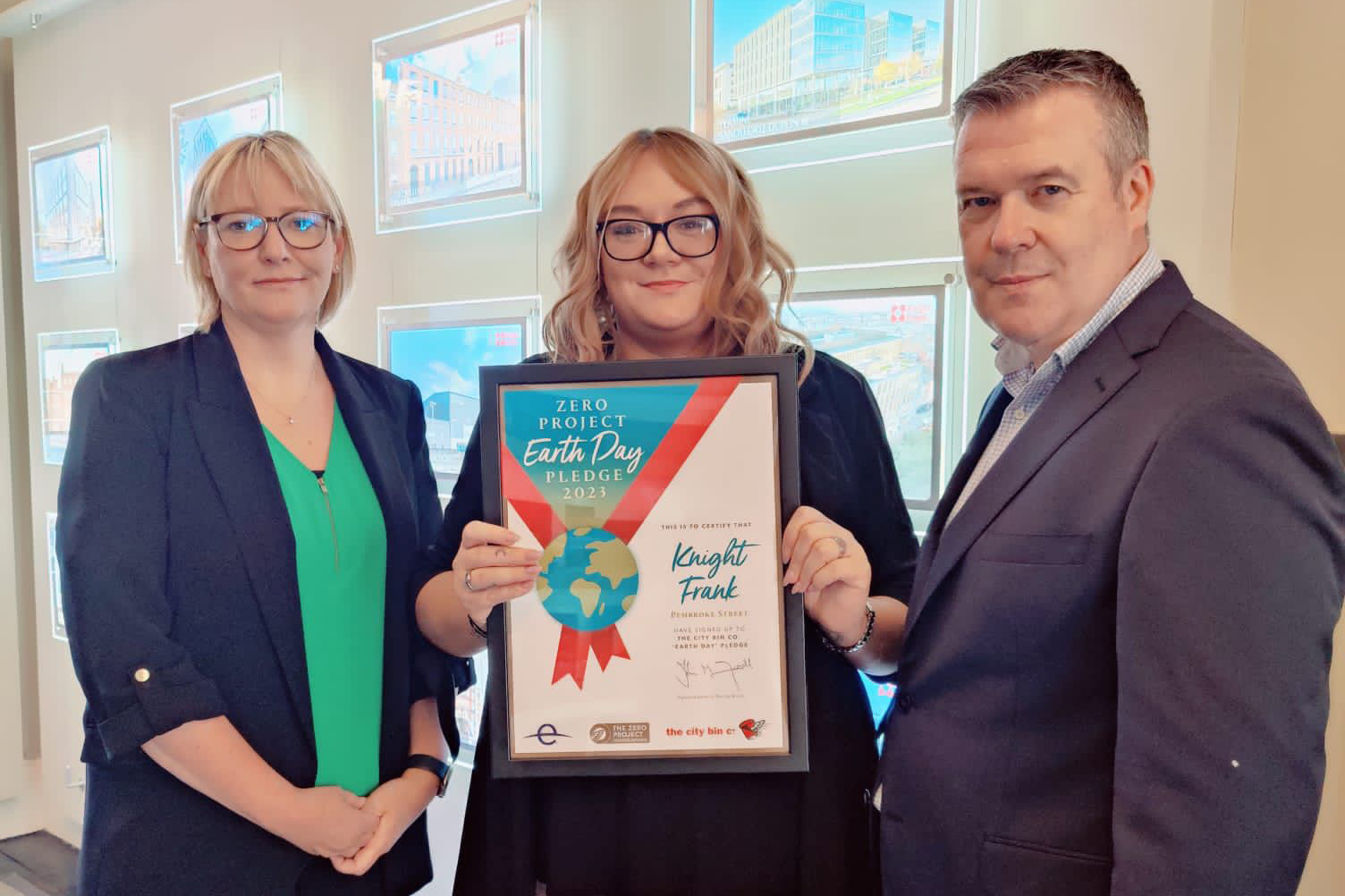
Knight Frank’s Rowena Crowley (Director Property Asset Management) and Anna Koczarska (Facility Manager) with The City Bin Co.’s John Farrell.
Progress over the past few months…
- the introduction of recycling bags
- a new organic separation system the implementation of a compost bin along with the introduction of a glass bin.
- Knight Frank now provide a breakfast and lunch option to all their team at HQ. This reduces the amount of waste being brought in at lunchtime and increases the amount of items being recycled.
The impact of this has been significant…
- They have moved from all waste going to landfill to an effective recycling rate of 69% (as of 31.03.23).
- The team are now better aligned with achieving the goal of Zero Waste to Landfill.
If you would like more information on the Zero Project, please contact John Farrell, The City Bin Co. email john@citybin.com